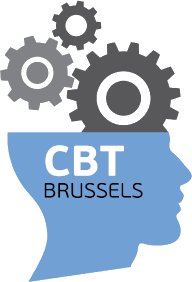A trauma is the impact felt when a person is confronted with a very frightening or threatening event that is outside the range of normal human experience. The event may be an isolated incident (i.e., devastating car accident, rape, criminal victimization) or a prolonged exposure to high-stress circumstances (i.e., combat, prisoner-of-war captivity, repeated sexual abuse), and even a witnessed occurrence, such as the observation of a murder. The result is often a strong and persistent impression on the person, in which a cluster of symptoms may be present: hypervigilance (heightened awareness of the environment and alertness to possible signs of danger), increased startle response (easily startled or "jumpy"), recurrent vivid memories associated with the event(s) or even the sense of reliving the event(s) ("flashbacks"), distrust or suspiciousness, sleep and/or appetite disturbance, recurrent nightmares, substance abuse ("self-medicating"), and mood disturbance (i.e., irritability/anger, anxiety, depression). The experience of some or all of these symptoms comprises the syndrome called Post Traumatic Stress Disorder (PTSD), or Post Traumatic Stress Syndrome (PTSS).
Despite education and awareness about PTSD, many sufferers do not know exactly what it is or what help is available. Furthermore, many of those with PTSD are reluctant for one reason or another to seek help (avoidance of the memories, pessimism about getting help, an overriding desire to help oneself and not rely on others). Today, many therapists and survivor groups are available to assist those who are struggling with the after-effects of trauma. Some trauma reactions may be acute, as in lasting less than 6 months, and others may last longer and possibly persist for years. This suffering adds further tragedy to the situation.

